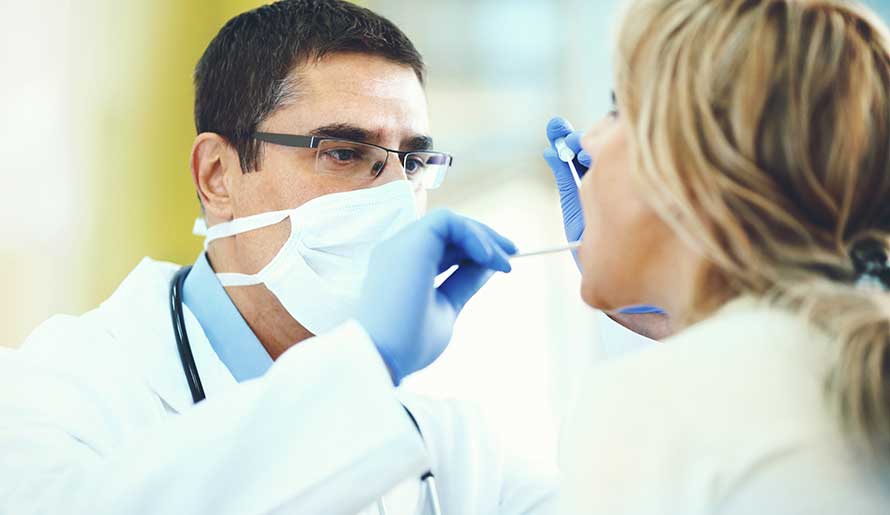Oral Cavity Cancer Screening

For reasons that are still unclear, oral cavity (mouth) cancers are on the rise. Oral cavity cancer screening is performed to identify signs of cancer before the malignancy progresses to cause obvious symptoms. Oral cavity cancers that are diagnosed in an early stage are typically easier to treat and are associated with more positive outcomes than cancers found in a later stage.
During oral cavity cancer screening, a dentist or physician carefully examines all areas of the mouth, including the:
- Lips
- Tongue
- Lining of the cheeks
- Gums
- Roof of the mouth
- Area beneath the tongue
Many potential signs of oral cancer are easily identifiable by a dentist or physician, such as:
- Loose teeth
- A lump or growth
- A red or white patch
- One or more sores that don’t heal
Several techniques may be used to help detect pre-cancerous changes on oral tissues that are not easily visible, including shining a special blue light in the mouth that distinguishes abnormal growths or changes from surrounding healthy tissues.
Who should be screened for mouth cancer?
An annual oral cavity cancer screening test is recommended for everyone beginning around age 18. It is especially important for an individual to receive regular oral cancer screenings if he or she:
- Uses any form of tobacco, including chewing tobacco, cigarettes, pipes, hookah, cigars, dip and snuff
- Drinks alcohol in excess
- Is frequently exposed to the sun, which can lead to cancer on the lips
- Has a compromised immune system
- Tests positive for human papillomavirus (HPV)
- Has a personal history of oral cancer
Moffitt's Approach to Oral Cavity or Throat Cancer
At Moffitt Cancer Center, our renowned Head and Neck Cancer Program offers individualized treatment services to patients with all types of throat and oral cavity cancers, as well as progressive treatment options from a diverse, multispecialty treatment team.
Diagnosis
